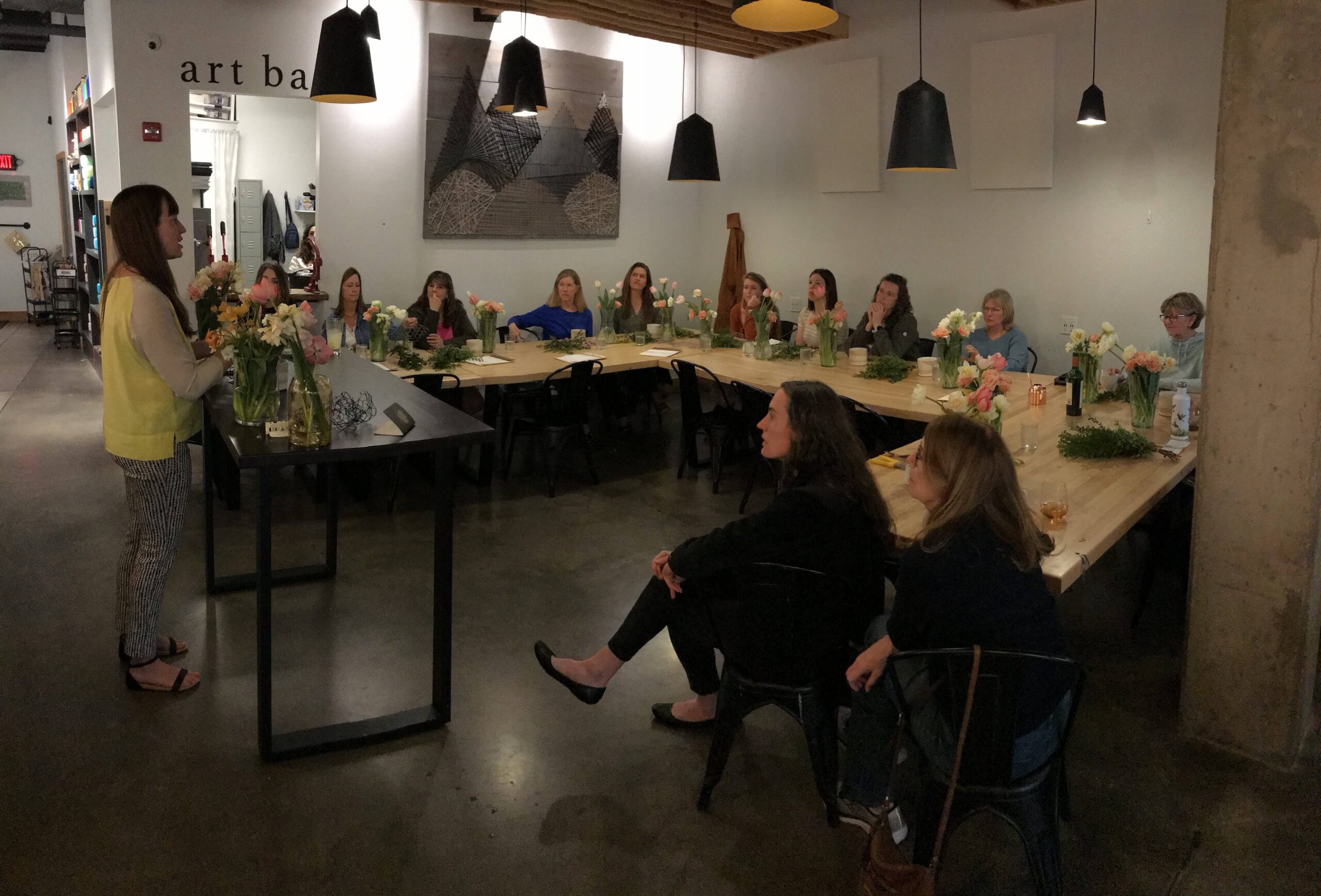The Best Ways to Embrace Community Healing for Lasting Wellness
Healing doesn’t have to be a lonely path. For many people, the first step toward lasting wellness is the decision to embrace the support of others. Whether you’re managing daily stress, living with anxiety, or working through unresolved trauma, meaningful connection can be a powerful catalyst for healing. In both individual therapy and group settings, people often begin to identify the patterns and pain points that hold them back.
Community healing is a gentle but transformative process that acknowledges each person’s ability to grow, adapt, and find peace. These supportive spaces allow for shared experiences, healthy boundaries, and emotional release—especially important for those in the midst of emotional struggle. While healing doesn’t always happen overnight, showing up, being seen, and opening up in safe and structured environments creates the foundation for real, lasting change.
Introduction to Community Healing
Community healing involves the conscious act of embracing support and fostering meaningful connection to enhance mental health and emotional well-being. For many, this is the first step toward living a more balanced and fulfilling life. Joining a community allows a person to feel seen and heard—something often missing in individual healing journeys.
Participating in supportive workshops and group settings can nurture emotional growth, as individuals begin to cultivate emotional maturity and self-love. These elements are crucial for developing deeper and more fulfilling relationships. Establishing healthy boundaries within these communities helps people feel safe, accepted, and emotionally secure.
Through these shared healing experiences, individuals often find a new sense of connection that helps ease stress and anxiety. To fully benefit from community healing, one must be willing to be open and vulnerable, which allows for genuine relationships and authentic transformation to happen.
The Importance of Emotional Maturity
Emotional maturity is foundational to strong, enduring relationships and the ability to navigate life’s inevitable challenges. It enables individuals to manage their emotional responses with intention and integrity. By practicing self-awareness and self-compassion, people can deepen their emotional intelligence and improve their mental health.
An emotionally mature person is better able to recognize, accept, and express emotions without suppression. This honest relationship with one’s feelings promotes emotional growth and fosters clarity in difficult moments. Instead of reacting impulsively, emotionally mature individuals respond with thoughtfulness—an essential trait in any healing community.
Moreover, emotional maturity enhances one’s capacity for empathy and clear communication, allowing for deeper connection in group settings. It strengthens the impact of supportive workshops and ensures that healing is mutual and compassionate.
Understanding Mental Health
Mental health is a vital component of overall wellness, influencing how we think, feel, and engage with the world. When communities come together with healing in mind, they can become powerful allies in supporting mental well-being.
Community healing initiatives provide access to education and resources that help people identify and manage their mental health. By participating in supportive workshops, individuals begin to understand the root of their stress, anxiety, or emotional overwhelm. They find safe spaces where they are not judged, but instead gently guided through their healing process.
With the right tools and support, community members can adopt effective coping strategies to deal with life’s challenges. Prioritizing mental health in this way improves overall life satisfaction and reduces the emotional burden many carry silently.
The Impact of Emotional Immaturity
Emotional immaturity can quietly undermine personal well-being and strain relationships. It often manifests through poor communication, lack of accountability, or defensive behavior. When these traits go unaddressed, they contribute to unresolved stress, persistent anxiety, and disconnection from others.
Recognizing these patterns is essential. Emotional immaturity can be subtle, such as avoiding hard conversations or blaming others for personal discomfort. By learning to identify these tendencies, individuals take the first step toward meaningful change.
In the context of community healing, emotional immaturity can be met with compassion and accountability. Through supportive workshops and reflective group discussions, individuals gain the tools to explore these behaviors safely. As emotional maturity is cultivated, healthier relationships and stronger mental health follow.
Finding a Role Model for Personal Growth
Having a role model can be a game-changer in one’s healing journey. Observing someone who demonstrates emotional maturity, strong boundaries, and healthy coping skills provides not only inspiration but also a practical roadmap.
Community healing settings naturally facilitate these connections. In group environments, people often find mentors or peers who model strength, vulnerability, and consistency. These role models help others identify what growth looks like in real time and offer encouragement through their own lived experiences.
Learning from a role model encourages a person to develop a growth mindset—the belief that transformation is possible, even through struggle. With continued support, individuals gain confidence in their ability to overcome challenges and grow emotionally.
Building a Supportive Community
Creating a supportive community is not just beneficial—it’s essential for lasting wellness. It takes intentionality and vulnerability, but the rewards are profound. A well-connected community becomes a source of strength, helping individuals feel less alone in their experiences.
Through supportive workshops, healing circles, and group activities, individuals build connection and trust. These gatherings foster emotional safety, offer mutual encouragement, and cultivate a sense of accountability that helps people stay engaged in their healing.
Communities thrive when they offer not only emotional encouragement but also practical assistance and compassionate listening. As members of such a community, people strengthen their sense of self and develop resilience to meet the challenges of life more effectively.
Developing Healthy Habits
Sustainable healing requires more than insight—it requires action. Developing healthy habits is one of the most powerful ways to maintain mental and emotional wellness. These habits act as emotional anchors, keeping individuals grounded even during times of stress or anxiety.
Practices like meditation, physical movement, healthy eating, and adequate sleep all contribute to improved mental health. Community healing provides not just motivation, but a support system that helps individuals maintain these habits.
Through supportive workshops, participants learn how to integrate healthy routines into their lives. They also develop compassion for themselves, realizing that consistency—not perfection—is what matters most. As these habits take root, people begin to feel more resilient, present, and capable of managing the ups and downs of life.
Navigating Challenges and Conflicts
Conflict is an unavoidable part of life, but how it’s handled can either harm or heal. In the context of community healing, challenges are reframed as opportunities for emotional growth. When individuals learn to communicate effectively, they reduce unnecessary stress and strengthen their relationships.
Community initiatives often provide tools and training in conflict resolution, emphasizing active listening and respectful dialogue. These skills help people navigate group dynamics, set healthy boundaries, and resolve disagreements constructively.
Facing and working through conflict in a supportive environment empowers individuals to embrace discomfort rather than avoid it. This not only enhances emotional maturity but also reinforces the importance of collaboration and empathy within the healing process.
Fostering Resilience and Growth
Resilience is the capacity to recover from adversity and continue growing in the face of difficulty. It is both a trait and a skill—one that can be nurtured through intentional practice and community support.
Community healing fosters resilience by helping individuals build inner strength and external connections. Through shared experiences and supportive workshops, people develop a deeper understanding of their own capacity to adapt and thrive.
This emotional growth is further supported by regular self-care, reflection, and the willingness to embrace change. Over time, individuals begin to see their struggles not as setbacks, but as essential steps on the path to healing. As they continue to build resilience, they often discover a renewed sense of purpose and lasting fulfillment.
Final Thoughts
Lasting wellness is not a destination but a journey—one filled with moments of clarity, support, and sometimes, struggle. When a person commits to embrace community healing, they gain more than insight; they gain strength through connection. Whether through shared stories in group settings, tools learned in therapy, or simply showing up to be with others, the power of healing multiplies when we’re no longer alone.
By setting healthy boundaries, acknowledging stress and anxiety, and taking the first step toward vulnerability, individuals begin to truly identify their needs and meet them with compassion. Healing can happen—and often does—when we open ourselves to support, practice patience, and let community be part of our process. Because sometimes, the path to inner peace begins not within—but beside—others who walk it with us.

